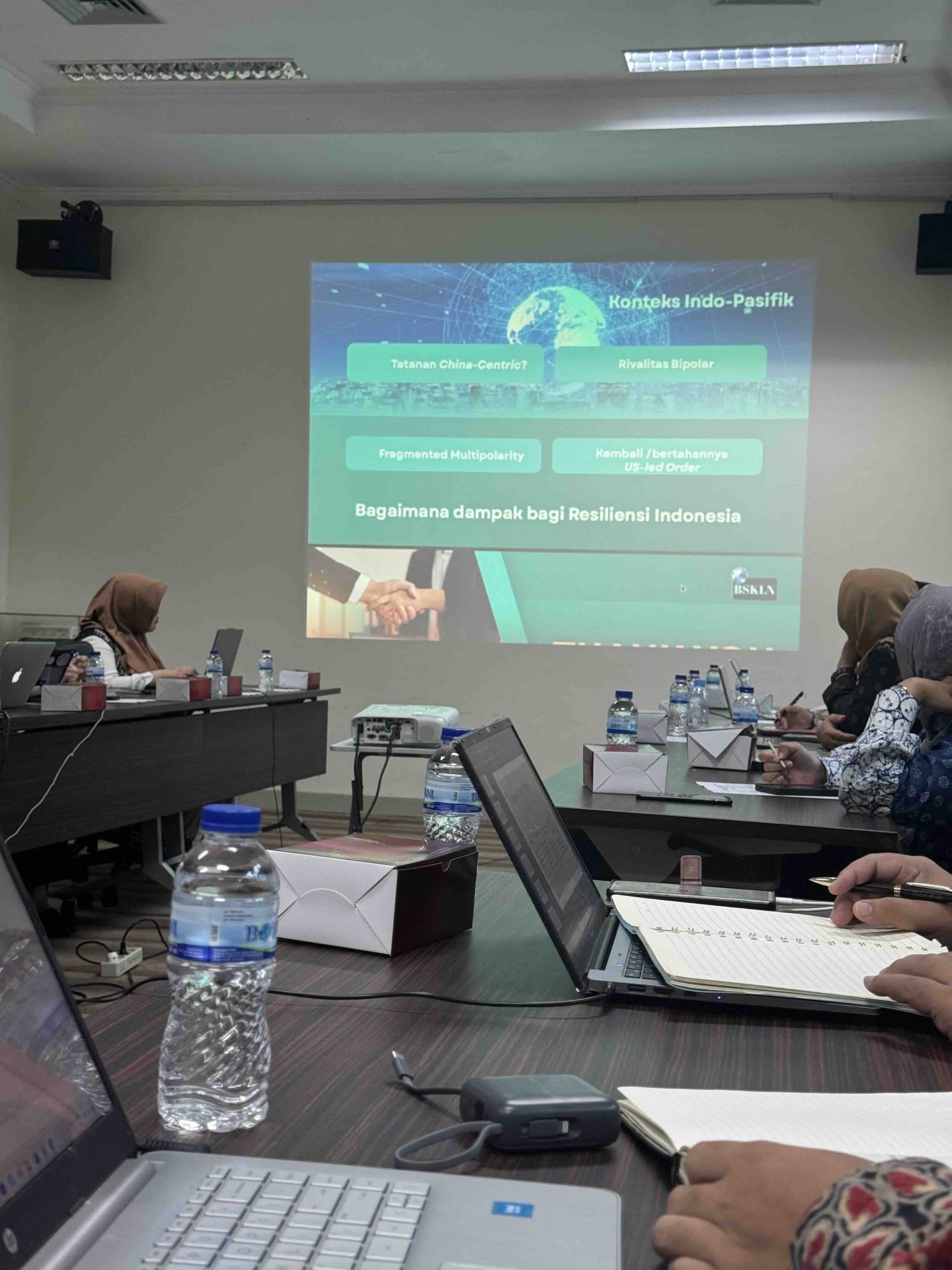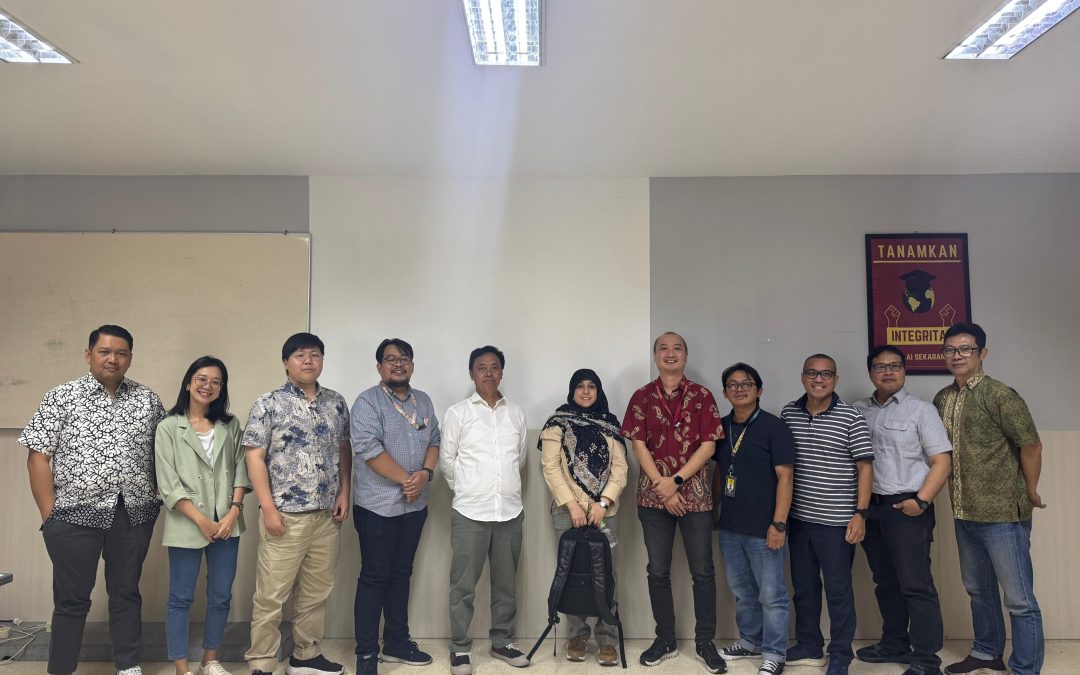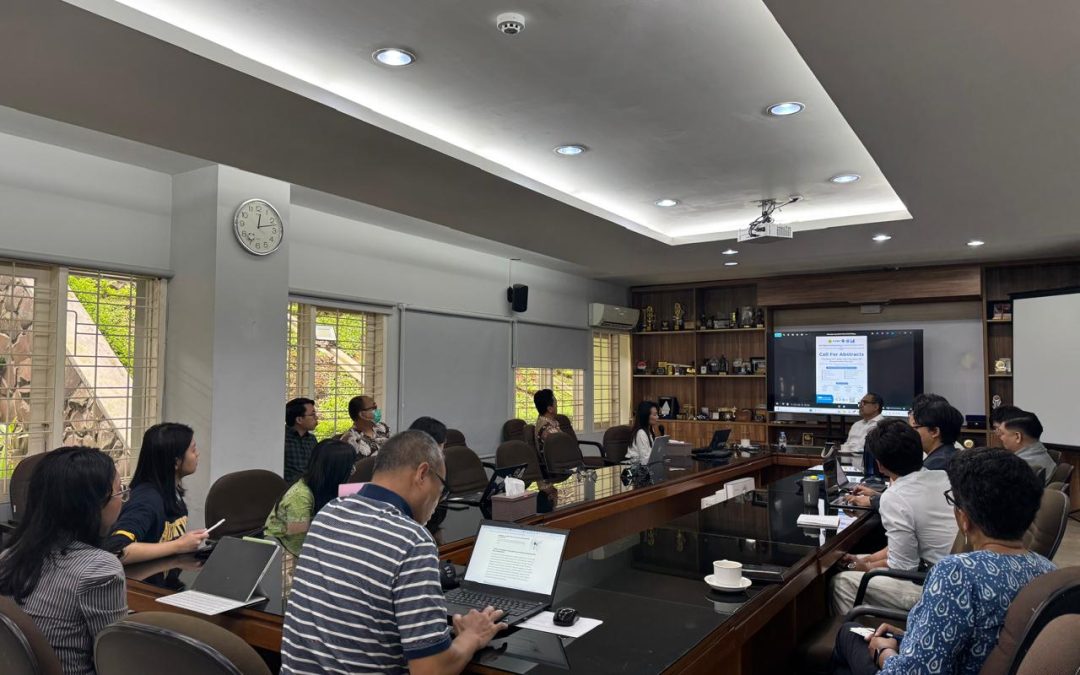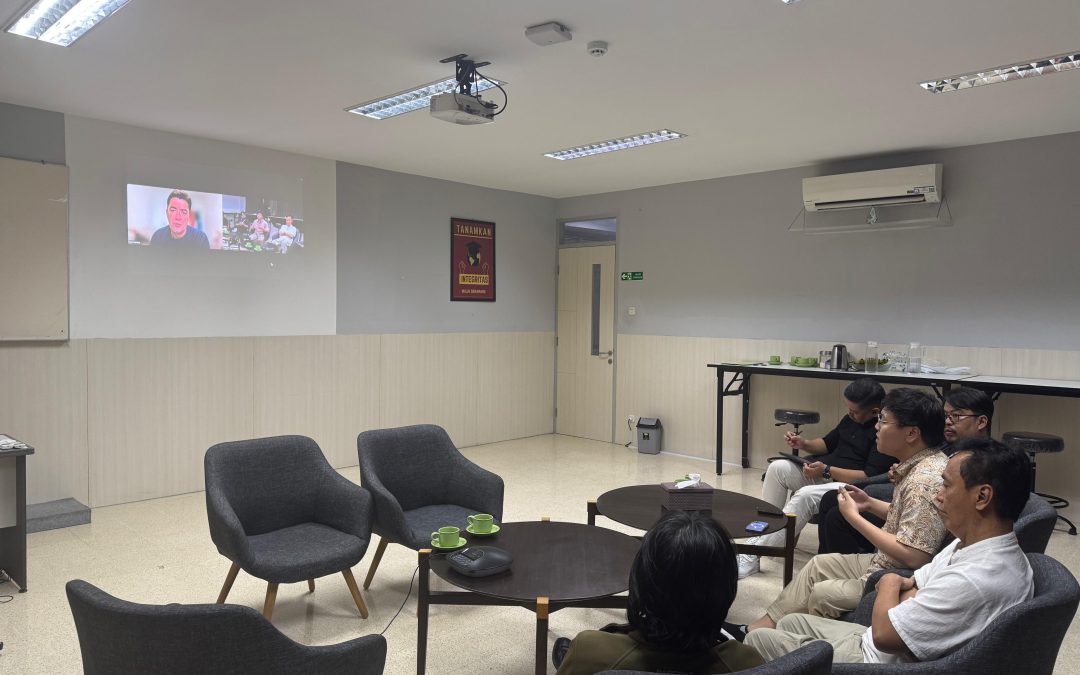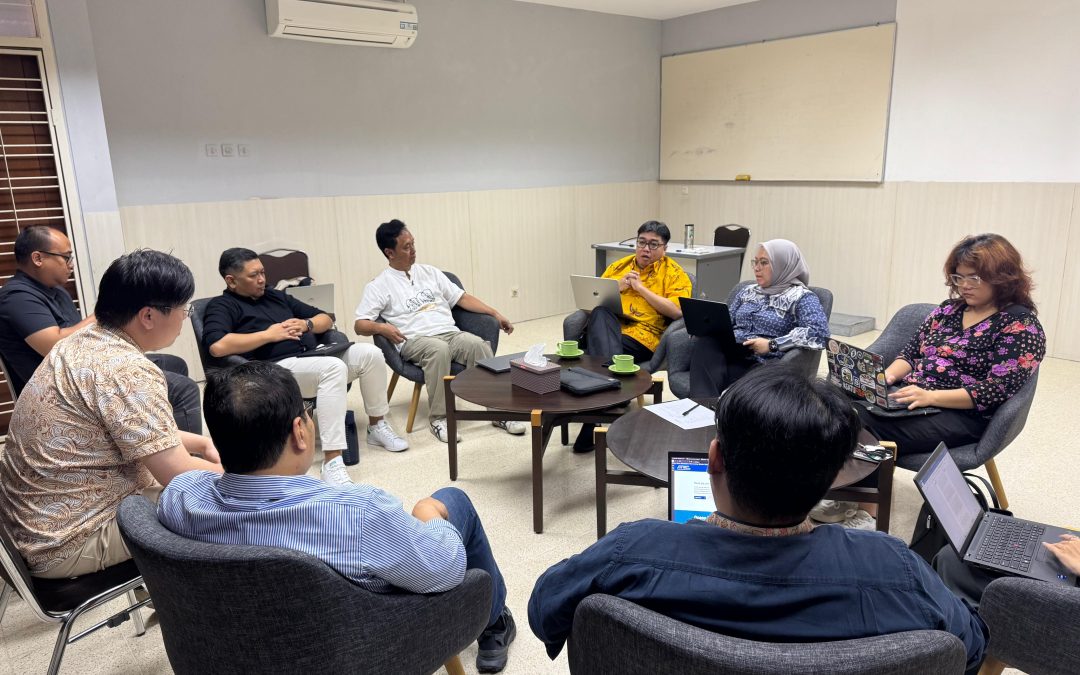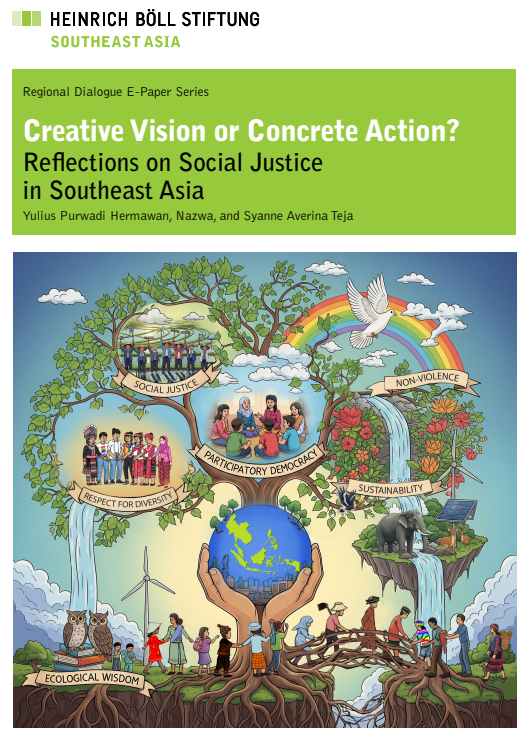Bogor, October 28, 2025. The Head of the Parahyangan Center for International Studies was one of the speakers in a limited discussion on the foreign policy analysis report held by the Center for Asia Pacific and Africa Policy Strategy, Foreign Policy Strategy Agency, Ministry of Foreign Affairs, on October 28, 2025. The limited discussion was opened by the Head of the Center for Asia Pacific and Africa Policy Strategy, Ministry of Foreign Affairs, and moderated by a Senior Diplomat within the Ministry of Foreign Affairs. Also providing input were Prof. Dr. Ir. Dedi Budiman Hakim, MAEc, Head of the Center for International Studies of Applied Economics and Finance, IPB University, and Zainal A. Budiyono, Executive Director of the Developing Countries Studies Center.
The discussion began with a presentation of an interim report, a policy analysis by the drafting team at the Center for Strategic Policy Studies in Asia, the Pacific, and Africa. The interim report was prepared over approximately a year through document review, focus group discussions with experts in related fields, and analysis of data collected by the drafting team.
The speakers offered their respective perspectives on how to strengthen food and economic security in Indonesia by learning from countries in the Indo-Pacific region, such as China, Japan, Korea, Australia, India, and New Zealand. Responses from representatives from technical directorates within the Ministry of Foreign Affairs enriched and refined the formulation of strategic policy recommendations prepared by the drafting team in the form of five policy briefs.
Specifically, Yulius P Hermawan, as the Chair of PACIS Unpar, emphasized the importance of formulating practical and actionable policy strategy recommendations based on solid, valid data that has been processed using systematic analysis methods. In addition to emphasizing the national strategy that is crucial to adopt in strengthening national resilience, the policy strategy also needs to emphasize regional and global diplomacy strategies that are in accordance with the expertise and responsibilities of the policy brief drafting team. Thus, the contribution of the Ministry of Foreign Affairs as the spearhead of foreign policy becomes clearly visible.

The PACIS Chair supports strengthening and refining the recommendations formulated in the policy brief, which draws on best practices developed by Australia, New Zealand, India, ASEAN, China, and the IORA. Indonesia can optimize its bilateral relations with Australia, New Zealand, India, and China, as well as multilateral cooperation within the ASEAN and IORA frameworks.
Each of these countries and regional organizations faces challenges in building food security and economic resilience and has developed superior strategies to address these challenges. These countries and regional organizations have also developed bilateral, regional, and global cooperation frameworks to further strengthen their respective resilience.
The Australian Government, for example, has a number of regional initiatives to provide funding to support climate-resilient agriculture, including: The Pacific Food Security Initiative (2020–2025), programs to support fisheries management and market access, and research projects focused on developing climate-adapted crops and soils. Australia is also developing a Southeast Asia Economic Strategy by increasing trade and investment in technology.
New Zealand is actively promoting sustainable, high-value food exports and is actively sharing knowledge related to agritech innovation to help other countries improve productivity and resilience. Programs currently under development include sustainable agriculture, agritech innovation, biosecurity, and international cooperation to realize commitments at COP 28 regarding the Declaration on Food and Agriculture.
India’s resilience in food security is strengthened by (1) record foodgrain production, (2) significant storage infrastructure expansion, and (3) strategic government initiatives. Key efforts to strengthen food security include modernizing the Public Distribution System (PDS) to reduce leakage, strengthening the National Food Security Mission, which includes nutrition and promoting climate-resilient practices to support rice production, supported by strengthening farmer incomes, processing, and strengthening the role of rice in global food security .
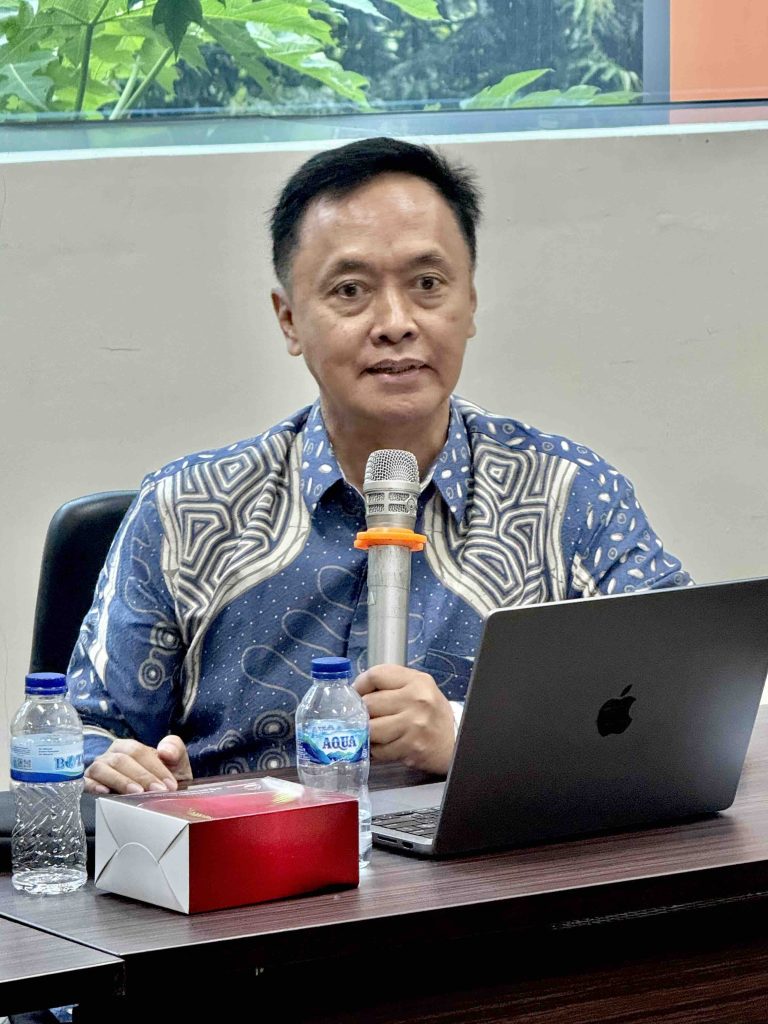
Optimizing cooperation with countries that have good practices in strengthening food security and economic resilience is one strategy that Indonesia can utilize to realize one of the ASTA CITAs that has been outlined in the 2025-2029 National Medium-Term Development Plan.

